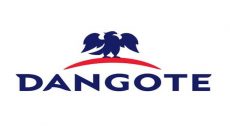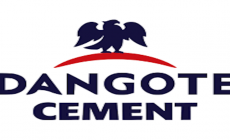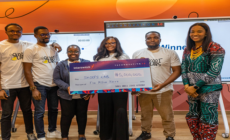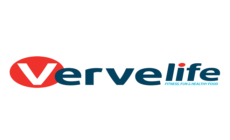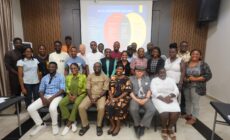The realm of social media has evolved into a potent catalyst for effecting social change and tackling the world’s most pressing challenges. In its ascendancy, social media has not only given birth to citizen-driven projects but has also ushered in a new era of participatory engagement, encouraging interaction with the public on a global scale.
Social media allows us to quickly spot social issues, make a decision to intervene showing support individuals real-time at a global scale. Thanks to social media, many nonprofits have gained support for their cause and engaged allies.
If we are to deepdive into the impact of social media on sustainable impact, there would surely be many examples to share. However, can we say the same of a crucial sector of our country, the media?
This comprehensive case study illustrates how key African media entities like Legit.ng and Al-Jazeera, and media companies worldwide, including renowned institutions like The New York Times, BBC News, The Guardian, have harnessed the power of social media to drive positive social impact. These examples demonstrate the versatility and potency of social media in facilitating discussions, raising awareness, and mobilising support on a global scale.
The Power of Social Media for Social Change
Social media platforms offer unique advantages for advocating social change on a global level, including:
- Global Reach: Social media enables instantaneous global communication, reaching a vast and diverse audience.
- Visual Storytelling: Media organisations employ visuals, including images, videos, and reels, to convey complex issues effectively and engage audiences emotionally.
- Engagement and Interaction: Social media fosters active engagement through likes, shares, comments, and discussions, creating dynamic dialogues around critical issues.
- Real-time Reporting: The immediacy of social media allows for real-time reporting and updates, crucial for addressing urgent issues.
African Media Impact on Social Change:
- Legit.ng – Period Poverty Campaign: Legit.ng, Nigeria’s leading digital media platform, embarked on a campaign to address period poverty, a pressing issue in Nigeria. Their video reels highlighting period poverty garnered over 31.3 thousand views and over 500 shares across Facebook and Instagram. In partnership with BRIDGE-D-GAP INITIATIVE, Legit.ng donated a substantial sum of money to provide menstrual care kits to underprivileged girls, making a tangible impact.
Similarly in 2022, Legit.ng had visited WARIF centre, Nigeria’s foremost NGO set up in response to the high incidence of sexual assault, rape and human trafficking occuring among young girls and women across Africa.
Having listened to the stories shared by the Medical Center Director, about gender-based violence survivors and the need for funds to provide proper medical care for many of these women who come to the centre, Legit.ng started a campaign to raise awareness about Gender Based Violence (GBV) in Nigeria. The media company also raised substantial funds through a 3-month social media campaign for some abuse survivors who went to WARIF centre to receive proper medical care.
- Al Jazeera – Arab Spring Uprisings: Al Jazeera, a prominent media entity in the Middle East, effectively utilized social media during the Arab Spring uprisings. Their live tweets, videos, and Facebook updates reached over 15 million users, facilitating real-time reporting and support for the movements across the Middle East and North Africa.
Media Companies Driving Global Social Impact
- The New York Times – #MeToo Movement: The New York Times played a pivotal role in the #MeToo movement by using social media to amplify the voices of survivors of sexual harassment and assault.
Through investigative journalism and impactful reporting, The New York Times shared stories, statistics, and multimedia content on platforms like Twitter and Instagram, resulting in over 6 million social media mentions related to #MeToo and countless more conversations globally. The movement sparked discussions, awareness, and accountability surrounding workplace harassment.
- BBC News – Climate Change Awareness: BBC News has leveraged social media platforms to raise awareness about climate change and environmental issues. Their engaging content, including visually appealing videos and infographics, has resulted in over 1.5 million shares across platforms, effectively reaching a global audience. The coverage has contributed to a broader global conversation on climate action and the adoption of sustainable practices.
- The Guardian – Immigration and Refugee Crisis: The Guardian’s social media campaign addressing the global immigration and refugee crisis has generated over 2 million engagements, including likes, shares, and comments. Their humanizing stories, striking images, and real-time reporting have dispelled myths and advocated for compassion and empathy toward refugees. The Guardian’s social media presence has influenced public opinion and government policies, contributing to positive change.
Inspiring Change and Unity through Online Engagement
These examples underscore the transformative potential of social media in driving global social change and impact. African media entities like Legit.ng and Al Jazeera, and media companies worldwide, including The New York Times, BBC News, The Guardian, have successfully harnessed the power of social media to inform, engage, and mobilize communities around critical issues.
By leveraging their online presence and creating compelling, shareable content, these organizations have demonstrated that social media is a vital tool for addressing pressing global challenges and fostering a brighter future. The statistics and case studies provided illustrate the substantial reach and impact achieved through these efforts, highlighting the enduring influence of social media in shaping the world’s conversations and actions.







